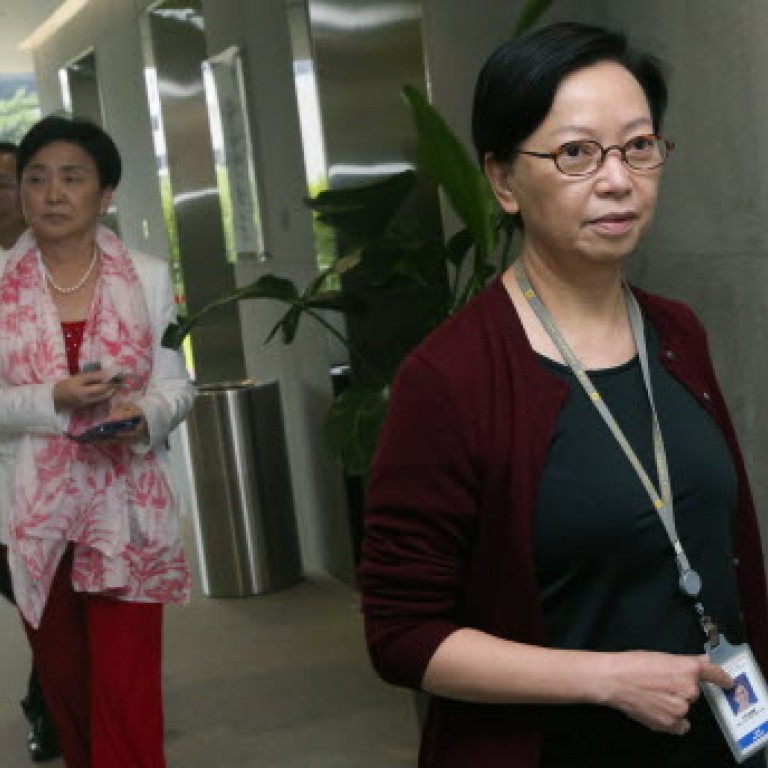
Pan-democrats soften stance amid hopes of meeting with Beijing
The pan-democratic camp appears to be softening its push to allow the public to nominate candidates for chief executive, in an attempt to set up a meeting with Beijing officials and forge a consensus on electoral reform.
The pan-democratic camp appears to be softening its push to allow the public to nominate candidates for chief executive, in an attempt to set up a meeting with Beijing officials and forge a consensus on electoral reform.
Signs emerged on the eve of a meeting today with Chief Secretary Carrie Lam Cheng Yuet-ngor, whom pan-democrats intend to ask for help in arranging direct talks with Beijing to discuss universal suffrage.
Cyd Ho Sau-lan, of the Labour Party, said the idea of letting the public put forward candidates in the 2017 election could be negotiable, "depending on what Beijing has to counter-offer".
Another person familiar with the situation said: "The central government wants a chief executive it can work with. Obviously Beijing is unlikely to accept public nomination. But there is still room for discussion on details such as nomination threshold."
But the planned meeting is clouded by worries that news of pan-democrats having received huge donations from media tycoon Jimmy Lai Chee-ying could pose a hurdle for the central government to invite pan-democrats for talks in Beijing.
Lai has close ties with American politicians and is known for his anti-communist stance.
"The chances of a meeting between pan-democrats and Beijing officials on the mainland are getting slimmer," a government source said. "But the door for meetings in Hong Kong remains open."
Chief Executive Leung Chun-ying yesterday promised that his administration would do its best to facilitate communication between the two sides.
But he said: "This cannot be only [the government's] own wishful thinking. I hope [the pan-democrats] can create good conditions and a good atmosphere so that we can better perform our role as a bridge."
In April, Leung arranged for lawmakers to meet senior mainland officials in Shanghai for electoral reform talks. But only 14 of the 27 pan-democratic lawmakers showed an interest, and just 10 joined the trip.
Frederick Fung Kin-kee, convenor of the pan-democratic camp's lunchtime meetings, said: "We will ask Lam to help arrange a meeting with Beijing officials again."
Civic Party lawmaker Ronny Tong Ka-wah added: "Now it seems the public nomination issue has reached a deadlock. Is it necessary for us to think of another way in order to make progress?"
He said further discussion should focus more on the composition of the nominating committee, its operation, nominating procedures and the number of candidates.
Next week, Lam will meet a group of 18 academics who have put forward a proposal for moderate reform, as well as the organisers of the Occupy Central movement for democracy.


